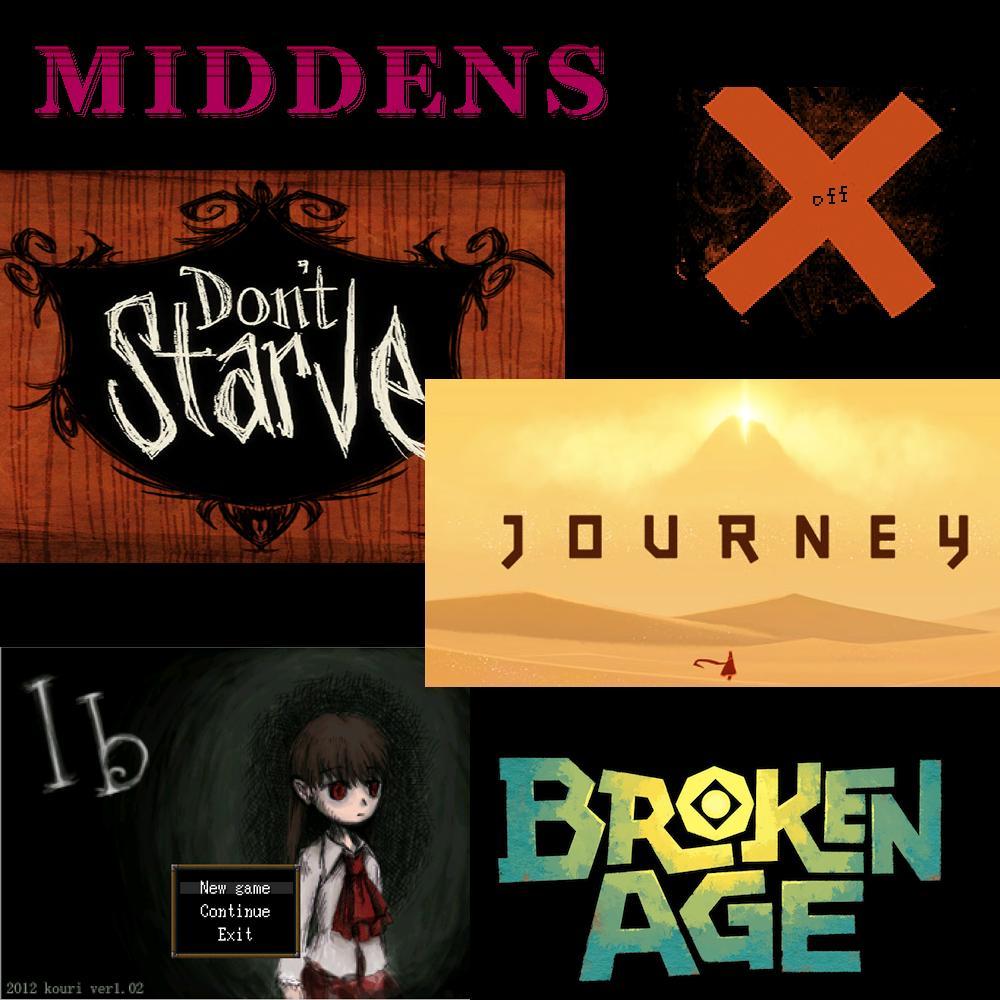Indie vs. Mainstream Games
Many indie games have gained popularity over the past few years; they come from all genres, but they appeal to audiences everywhere.
March 4, 2014
Independent or “indie” games have been on the upsurge recently; these are video games created by an individual or a small team, frequently without publisher support. Popular titles from the last few years include Journey, Don’t Starve, and, very recently, Broken Age. Indie games have gotten a reputation for being particularly artistic or innovative, and I agree.
Indie games tend to be dramatically unique in terms of both concept and storyline. A majority of the mainstream games I see gaining popularity nowadays are either overdone, overplayed, generic, or some hideous mixture of the three. I’m not trying to say that old standby stories or mechanics are bad; the generic first person shooter mechanic will probably never go out of style, and the “hero’s quest” type story is so malleable that a variety of unique stories can be borne from it. However, sometimes, it just gets a little boring. Video games are such a unique medium for storytelling and art presentation, and it’s a waste of time and energy to make or play a game that’s been done a thousand times before.
One “genre” of indie games that have been especially notable for their avant-garde art and stories have been RPGmaker games. RPGmaker is a simple program for the PC, and the games it produces tend to have very basic pixelated graphics, and commonly resemble other RPGmaker games in terms of mechanics and gameplay. I have loved the RPGmaker games I’ve played through; significant titles being Ib, Off, and Middens.
Despite the limited visual capabilities of these games, they have all provided me with striking, recognizable graphics. Ib is defined by its dark, creepy palette, in which colorful characters and objects exist; Off’s limited, almost monochrome world is the perfect setting for a story about decay and inevitability, and its surreal, dark characters provide plenty of inspiration and nightmares alike. The most bizarre graphics I have ever encountered come from Middens, where the background is full of alien landscapes and almost constantly strobing neon colors– and if you can’t stomach Dali’s works, don’t even bother trying to comprehend this game’s supporting cast. These games have given me an appetite for the unconventional and creative. Most mainstream games are unwilling to dip into radical waters, for fear of alienating their audience. Indie games generally don’t have this problem, since they frequently appeal to niche gamers, or gamers looking for a new experience.
Additionally, these games all have intriguing stories and themes. Unlike many mainstream games that seem to be a rehash of their predecessors, these indie RPGmaker games have captured not only my imagination, but my philosophical and analysis skills. Ib follows the adventures of a young girl trapped inside a haunted art museum; definitely an adventure-horror story, supported by skilled world building and one great plot twist. Both Off and Middens are a little more abstract in terms of their story. Off has a theme of purifying decay and overcoming corruption, and the story starts off average enough; a hero must go save his world. However, as the story continues, it becomes increasingly dark and twisted, and due to many breaks in the fourth wall, the player is left wondering whether or not they are morally responsible for their character’s actions within the game. Middens is similarly dark and confusing in its themes. The story is little more than a goal that the player is given, and disjointed pieces of information spread around the game. The effect, though, is very enjoyable for players that enjoy lots of exploration and freedom.
Though video games have a history of tackling difficult and controversial issues, indie games hold a little more bravery in their discussion and presentation of said issues. Broken Age deals with issues such as martyrdom, sexism, and social responsibility, in a manner so candid it’s almost disturbing. The subject matter is presented in an honestly simple, normal way, which makes it all the more jarring– still, the game remains entertaining and the story compelling. I haven’t yet seen a mainstream game that takes on intense issues in this way, and was also a enjoyable and interesting game.
When I hear rave reviews about an indie game, I almost always believe them, more so than for mainstream games. I’ve seen indie games take stories and do them better visually and I’m convinced that, at least for now, they are providing a better product than most mainstream games out there.














